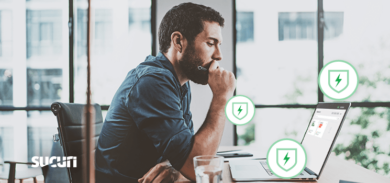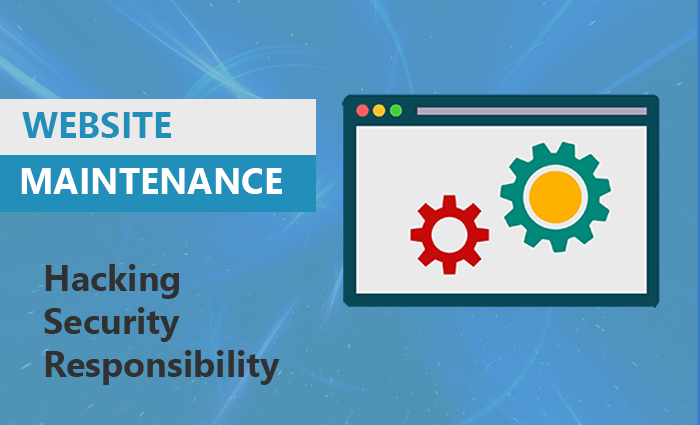The website owner and hosting provider share responsibility for website security. Both must implement robust security measures.
Website security is crucial for protecting sensitive data and maintaining user trust. The website owner must ensure that strong passwords, regular updates, and secure coding practices are in place. The hosting provider should offer robust security features like firewalls, malware scanning, and automated backups.
Regular security audits and monitoring can help identify vulnerabilities early. Cyber threats are constantly evolving, making vigilance essential. Neglecting security can lead to data breaches, financial losses, and damage to reputation. Both parties need to stay informed about the latest security trends and technologies. By working together, they can create a secure online environment for users.
Introduction To Website Security
Website security is vital for protecting online data. It ensures your site runs smoothly. Without it, your website can get hacked. Hackers can steal sensitive information. This can hurt your business and reputation.
Importance Of Security
Website security protects your personal and business information. It keeps your data safe from hackers. A secure site builds trust with visitors. They feel safe sharing their info with you. This can lead to more sales and engagement.
Search engines also value secure sites. Your site can rank higher in search results. This means more traffic and potential customers. In short, security is good for business.
Common Threats
There are many threats to website security. Here are some common ones:
- Malware: Software designed to harm your site or steal data.
- Phishing: Fake websites or emails tricking users into sharing info.
- DDoS Attacks: Overloading your site with traffic to make it crash.
- SQL Injection: Inserting harmful SQL code to manipulate your database.
Understanding these threats is key. It helps you take steps to protect your site. Regular updates and strong passwords can help. Using security plugins is also a good idea.
Remember, a secure website is a successful website. Protect your site and your business.
Website Owners
Website owners hold the primary responsibility for their website’s security. They need to ensure that their site is safe from cyber threats. This involves continuous monitoring and updating of security measures.
Roles And Responsibilities
Website owners have several key roles and responsibilities:
- Updating Software: Regularly update CMS, plugins, and themes.
- Backup Data: Keep frequent backups of your website data.
- Security Policies: Implement and enforce strict security policies.
- Monitoring: Constantly monitor for suspicious activities.
Best Practices
Follow these best practices to keep your website secure:
- Use Strong Passwords: Ensure all passwords are complex and unique.
- Enable HTTPS: Use SSL certificates for secure data transmission.
- Limit Login Attempts: Set limits on login attempts to prevent brute force attacks.
- Install Security Plugins: Use plugins designed for website security.
- Regular Scans: Perform regular security scans to detect vulnerabilities.
Website security is a shared responsibility. Website owners play a crucial role in ensuring their site is protected from threats.
Web Developers
Web developers play a crucial role in website security. They build and maintain the website. They ensure that the site is secure from the ground up. Their expertise helps prevent potential security breaches. Let’s explore how web developers contribute to website security.
Security By Design
Security by design means integrating security features from the start. Web developers use secure coding practices. They follow industry standards to protect against threats. This approach minimizes vulnerabilities in the website’s architecture.
- Input validation: Ensures that data entered by users is safe.
- Data encryption: Protects sensitive information during transmission.
- Authentication: Verifies user identities to prevent unauthorized access.
By incorporating these practices, developers create a robust foundation. This helps in defending against common attacks like SQL injection and cross-site scripting (XSS).
Code Reviews
Code reviews are essential for maintaining high security standards. Developers regularly check each other’s code. This process identifies potential vulnerabilities early.
| Review Type | Purpose |
|---|---|
| Peer Review | Immediate feedback from fellow developers. |
| Automated Review | Uses tools to scan for common issues. |
| Security Review | Focuses on identifying security flaws. |
By conducting regular code reviews, developers ensure that the codebase remains secure. This proactive approach helps in mitigating risks and maintaining website integrity.

Hosting Providers
Hosting providers play a crucial role in website security. They offer the infrastructure and services that support your website. Choosing a reliable hosting provider is essential for safeguarding your site. Let’s explore key aspects of hosting providers’ responsibilities.
Server Security
Server security is vital to protect your website from attacks. Hosting providers must ensure their servers are secure. They should use advanced firewalls and intrusion detection systems. Regular security audits help identify vulnerabilities.
Here are some measures hosting providers should take:
- Implementing strong firewalls
- Using intrusion detection systems
- Conducting regular security audits
- Ensuring secure configurations
Secure servers prevent unauthorized access and data breaches. Your hosting provider’s security measures directly impact your website’s safety.
Backup Solutions
Backup solutions are essential for website security. Hosting providers should offer reliable backup services. Regular backups protect your data in case of a breach or failure.
Key features of good backup solutions include:
- Automatic backups
- Frequent backup intervals
- Secure storage of backup data
- Easy restoration process
Reliable backup solutions ensure you can restore your website quickly. This minimizes downtime and data loss.
Choosing a hosting provider with strong server security and backup solutions is crucial. It ensures your website remains safe and functional.
Third-party Services
Website security is a shared responsibility. Third-party services play a crucial role. These services include plugins, extensions, and security tools. They help protect your website from threats. Choosing reliable services is essential for strong security.
Plugins And Extensions
Plugins and extensions enhance website functionality. They add features like contact forms, SEO tools, and more. But they can also introduce security risks. It’s important to choose trusted plugins.
- Regularly update plugins and extensions.
- Read reviews and check ratings before installation.
- Avoid using outdated or unsupported plugins.
Here’s a quick checklist for safe plugins:
| Action | Frequency |
|---|---|
| Update plugins | Weekly |
| Check reviews | Before installation |
| Remove unused plugins | Monthly |
Security Tools
Security tools are essential for protecting your website. They detect and remove malware. They also monitor for suspicious activity. Investing in good security tools is crucial.
- Choose tools from reputable providers.
- Ensure tools are regularly updated.
- Use tools that offer real-time protection.
Popular security tools include:
- Wordfence
- Sucuri
- MalCare
These tools provide various features:
| Tool | Feature |
|---|---|
| Wordfence | Firewall, malware scan |
| Sucuri | Website firewall, monitoring |
| MalCare | One-click malware removal |

Security Experts
Security experts play a crucial role in protecting websites. They have the knowledge and skills to keep your site safe. Their work includes regular checks, finding weak spots, and fixing them. Let’s explore how they help.
Consulting Services
Security experts offer consulting services to assess website security. They can identify risks and suggest improvements. These experts provide tailored advice suited to your specific needs.
- Assess current security measures
- Identify potential threats
- Recommend security tools
- Provide training for staff
Engaging with security consultants can prevent future issues. It ensures a proactive approach to website protection.
Penetration Testing
Penetration testing is a simulated cyber attack on your website. Security experts use this method to find vulnerabilities. This helps in understanding how an attacker could exploit your site.
- Planning and preparation
- Scanning and testing
- Gaining access
- Maintaining access
- Reporting and fixing
Penetration testing reveals hidden flaws in your system. Fixing these flaws strengthens your website’s defenses.
| Benefits of Security Experts |
|---|
| Expert advice tailored to your needs |
| Early detection of vulnerabilities |
| Improved overall security |
Hiring security experts ensures continuous protection. Their insights and actions keep your website secure from threats.
End Users
Website security is not just the responsibility of developers and administrators. End users play a crucial role. Their actions can greatly impact a site’s security. Understanding user behavior and password management is essential.
User Behavior
End users often interact with websites in ways that can be risky. They may click on unknown links or download suspicious files. Educating users about safe online practices is vital.
- Avoid clicking on unknown links.
- Do not download files from untrusted sources.
- Report suspicious activity immediately.
Users should also be aware of phishing attempts. These are fraudulent messages that look legitimate. Clicking on a phishing link can compromise website security.
Password Management
Password management is another critical aspect of user responsibility. Weak passwords are easy for hackers to guess. Users should create strong, unique passwords for each site.
- Use a mix of letters, numbers, and symbols.
- Avoid using easily guessable information like birthdays or names.
- Change passwords regularly.
Using a password manager can help. These tools generate and store strong passwords. This reduces the risk of password reuse and enhances security.
Encourage users to enable two-factor authentication (2FA). This adds an extra layer of security. Even if a password is compromised, 2FA can prevent unauthorized access.

Collaborative Efforts
Website security is not just the responsibility of one individual. It requires collaborative efforts. This means everyone involved with the website must work together. Each person has a crucial role to play. They must communicate effectively and be ready to respond to incidents.
Communication Strategies
Effective communication strategies are vital for website security. Everyone should know the security policies. This includes developers, content creators, and administrators. Clear communication helps prevent misunderstandings. It ensures everyone knows their responsibilities.
One effective strategy is regular security meetings. These can be weekly or monthly. Discuss any potential threats. Share updates on security measures. Encourage team members to ask questions. This keeps everyone informed and engaged.
| Role | Responsibility |
|---|---|
| Developer | Implement security features |
| Content Creator | Follow security guidelines |
| Administrator | Monitor security protocols |
Incident Response Plans
Having a clear incident response plan is essential. This ensures quick action during a security breach. Everyone should know the steps to take. This minimizes damage and restores security fast.
- Identify the breach
- Contain the threat
- Assess the damage
- Communicate with the team
- Implement recovery measures
Each step should have a designated person. This ensures accountability. Regular drills can help. They keep the team prepared for real incidents.
Future Trends In Website Security
Website security is evolving rapidly. Keeping up with future trends is essential. New threats emerge daily. Innovations in technology also bring new security challenges. Understanding these trends helps protect your website better.
Emerging Technologies
Emerging technologies are shaping website security. Artificial Intelligence (AI) plays a significant role. AI can detect threats faster than humans. Machine Learning (ML) helps in identifying patterns. These patterns can predict potential attacks.
- Blockchain Technology: Secures transactions and data. It creates a tamper-proof ledger.
- Quantum Computing: Offers advanced encryption methods. It makes hacking extremely difficult.
- Internet of Things (IoT): Secures connected devices. Each device gets unique security protocols.
Regulatory Changes
Regulatory changes impact website security. Governments introduce new laws to protect data. Businesses must comply with these regulations. Non-compliance can lead to penalties.
| Regulation | Description |
|---|---|
| GDPR | Protects data privacy in the EU. Requires strict data handling protocols. |
| CCPA | Protects consumer data in California. Gives users control over their data. |
| PIPEDA | Protects personal data in Canada. Ensures data is collected responsibly. |
Businesses should stay updated on these regulations. Proper compliance ensures data security. It also builds trust with users.
Frequently Asked Questions
Who Ensures Website Security?
Website security is a shared responsibility. It involves web developers, hosting providers, and website owners. Regular updates and security practices are crucial.
How Do Developers Secure Websites?
Developers secure websites by writing clean code, using security plugins, and implementing HTTPS. They also regularly update software.
What Role Do Hosting Providers Play In Security?
Hosting providers offer secure servers, SSL certificates, and regular backups. They also monitor for malware and vulnerabilities.
Why Is Website Owner Responsible For Security?
Website owners must keep software updated, use strong passwords, and regularly back up data. They should also monitor for suspicious activity.
Conclusion
Website security is a shared responsibility. Both developers and users play crucial roles. Regular updates, strong passwords, and secure coding practices are essential. Monitoring and quick response to threats ensure safety. Prioritize security to protect your digital assets and maintain user trust.
Stay vigilant and proactive for a secure online presence.
